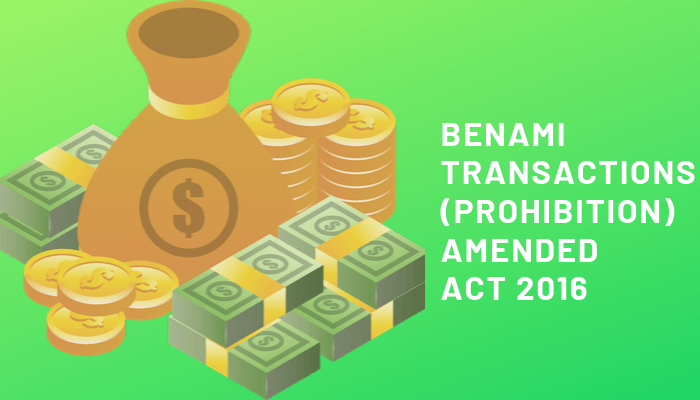In this article, we will discuss about...
What is the Benami transaction?
Benami means “without the name”. Transaction means Any arrangement of Financial nature. So accordingly, In other words:-
- It is held in a fictitious name or;
- When the property owner is unaware or denies having ownership knowledge or;
- When the property is in possession of one person and consideration paid by another person or;
- The person financing such transaction is not traceable
Who is a Benamidar?
A Benamidar or beneficial owner is a person or a fictitious person, as the case may be, in whose name the Benami property is transferred or held and includes a person who lends his name.
Actually Benamidar has no further beneficial interest, as he declares himself as the real owner and who just merely holds the property or business in his possession. The main Target is that when the property is acquired in the name of a person but the consideration was paid by another, then it is presumed that Consideration paid by a person is the real owner of the property.
Scope:-
It applies to Immovable Properties and Bank Accounts. In this Benami Transaction, Benamidar possesses the ownership of the Assets either of Immovable Properties or Bank Accounts.
Object:-
- This Benami Transactions (Prohibition) Amendment Act 2016 imposes draconian consequences on persons seeking to evade the law by holding property by illegitimate means.
- The main rationale behind the formation of this act is to eradicate the illegal source and resources and to bring equity and justice which is excluded in the genuine transactions
Important keynote:-
It is important to note that under this act if a property is purchased in the name of one person and the consideration is paid by some other person, then it is deemed that the person who paid the consideration is the main real owner of it.
What will happen to the Benami Property?
- Issuing a show-cause notice:
When the Initiating Officer has a reason to believe that the evidence gathered are material and on the basis of such evidence, any person who is concluded to be benamidar with respect to a property, the officer may issue a notice to such person to show cause why the property should not be treated as Benami property within the time specified in the notice. He must record the reasons in writing.
- Effect of Alienation after notice:-
If any person, after receiving a show-cause notice from the Initiating Officer in respect of any property, attempts to alienate that property, such a transaction will be held null and void.
- Provisional Attachment(90 days):
If the Initiating Officer has reason to believe that the property held is a Benami property and the notified person may alienate such property during the period specified in the notice, he may, by order in writing, attach provisionally the property in the manner as may be prescribed, for a period not exceeding ninety days from the date of issue of notice. Before attaching the property, he must seek the approval of the Approving Authority. This provisional attachment can be continued by an order passed by the Initiating Officer.
Who initiates proceedings against alleged Benami property beneficiaries?
It will be initiated by the Assistant or Deputy Income-tax commissioner, who is designated as an initiator by the government and will be authorized to start proceedings into the suspected illegal or Benami transactions.
The time period of deciding Benami proceeding:-
The Above mentioned authority will decide within a year if the property is Benami. The Bill provides for an appellate tribunal, too.
The burden of Proof:
The burden of proving all the facts necessary to lead to the inference that the transfer was Benami is on the person who is asserting it to be.
Proceedings against Benami Property Beneficiaries
- Confiscation of the Benami Property
Upon consideration of all the material evidence in respect of properties in question then it will be confiscated. These will be managed and disposed of by designated officers, who will be appointed from among income-tax officers.
- Punishment Provisions
The suspected person upon conclusion of proceeding will be liable to face rigorous punishment ranging from a year to seven years in jail.
- Fine
These persons will be liable for a fine of up to 25% of the fair market value of the property
The fair market value of the property:-
It means Property that would ordinarily fetch on sale in open market. If the price is not ascertainable then another procedure will be prescribed as per the relevant case.
Summary and Implications
At every turn, it faces the same set of questions as to the legal V/s. illegal purpose.

